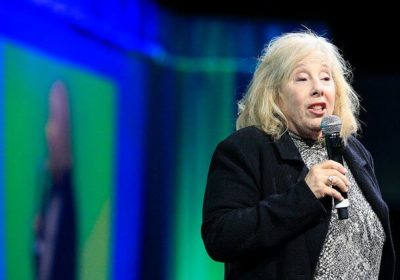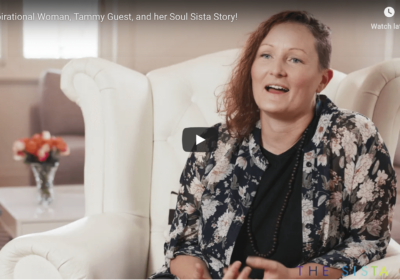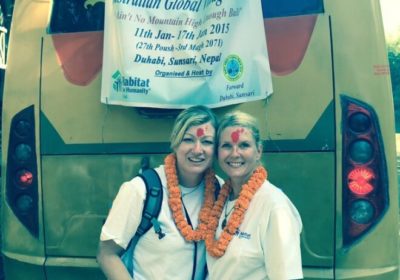- Stats: 1998 6 0
- Author: Melissa Histon
- Posted: 26/03/2019
- Category: Inspirational Women, Soul Sista Stories
- Tags: escaping domestic violence, experiencing psychosis, healing from mental illness, how to be inspirational, how to heal from trauma, how to inspire others, Inspirational women, motivational women, psychosis, sent to a mental hospital, soul sista stories, suffering a mental breakdown, suffering a psychotic breakdown, teenage pregnancy, the sista code, ward of the state
Emma’s journey from psychosis, to pregnancy, to healing
My name’s Emma. I’m a councillor and a coach, and I run mental health and empowerment programs.
I was bullied on and off as a young girl, and I think that on and off piece is probably what was most significant because what that meant was that I developed a real sense of insecurity. I didn’t know, on any given day, whether or not I was going to fit in or whether or not I was going to be targeted, whether I was going to have a good day or a bad day. What that meant was I become incredibly anxious as a young child.
The bullying varied from the kids making up songs and singing them about me on the playground, to being excluded from games, sleepovers, parties, being the last one picked on the soccer team. I experienced days where my schoolbag would be hidden, things would be put in my lunch. It was very traumatic. I didn’t really ever know what was coming, and who it was coming from, and when, essentially, it was going to happen. But, ultimately, yeah, it was day in and day out for a fairly long length of time.
I felt incredibly insecure, I felt like there was something wrong with me, as to why I was always continuously being targeted, so what I learned really early on was that to be myself, meant that I would automatically become the victim of bullying, so I didn’t want to be myself. I wanted to be anything but myself, and do anything I could possibly do to fit in and to be liked.
My anxiety, in my teenage years, quickly turned into an anxiety fuelled depression. I essentially gave up on life, I didn’t have any energy for things. I didn’t want to take part in the day to day anymore. I completely believed, by the age of around 16, that I wouldn’t amount to anything, so I didn’t want to have a shot at anything anymore.
I was put on significant dose of antidepressants at the age of 15, and it was a really difficult time, not only for myself, but for my family as well, because I had once been a fairly outgoing, upbeat, engaged child to being completely disengaged and completely unwilling to take part in life.
By the time I was 19, things weren’t getting any better. They were actually getting a lot worse. I was struggling with crippling depression. I was making choices that were far from good ones, and ultimately my life was in disarray to the point where, at the age of 20, I suffered with a complete mental breakdown.
The mental breakdown was characterized by a psychotic illness whereby I experienced deep episodes of psychotic hallucinations and delusions that lasted, on and off, for over 12 months.
Psychosis is an illness that is characterized by hallucinations and delusions. In my case, my hallucinations were very severe and very traumatic. One of my psychotic hallucinations, that lasted for several weeks, meant that everybody around me actually appeared to be dead, and I was the only lone survivor.
In appearing to be dead, they looked like zombies. They looked like they had, literally, arisen from the grave with parts of their faces missing, parts of their bodies missing. I could see things, smell things, hear things, touch things, that were, in fact, not real but were as real to me then, within the episode, as sitting here with you is now.
The experience of psychosis was incredibly traumatic. It triggers the same experience in your physicality, in your body, as if it’s going in in real life. I would scream a lot, cry a lot, run a lot, hide a lot, behave really erratically in order to get away from my fear. It was as real for my body as it was for my mind that was going through it at the time.
My experience led me to become a ward of the state and have to be institutionalized. It was the hospital care that I required the most. My parents did everything that they could to keep me at home, and keep me in care, but unfortunately, it wasn’t to be. My situation required that level of institutionalized care, and I was made a ward of the state shortly after my 20th birthday, and I spent a good part of a year recovering within the system.
One of the most confronting things about my experience was being in hospital, being in institutionalized care in a psychiatric ward. It was incredibly frightening to have to come to terms with that situation, the people in there, the level of care that’s supplied, because ultimately, we are all clinically insane.
Th difference between institutionalized care now, or being in a mental hospital now, is that patients are typically put in their own rooms, segregated, and there’s a better level of care applied to each individual case. Whereas, when I experienced institutionalized care, everybody was in amongst … it was a bit of a free for all. I would wake up in the middle of the night and have different men sitting on the end of my bed. I was still seriously drugged up and sedated whilst I was inside, so it was very difficult to make sense of what was going on around me and to put the pieces together and establish why it was I was there. That in itself, the unknown, and the fear of what was going on around me without being able to properly understand it was incredibly traumatic.
It was a long process of recovery for me and it was a process. It started by me being released from hospital into a private hospital whereby then I became an outpatient, and I had to engage in regular group therapy and keeping my care with a psychiatrist and psychologist. This was really difficult for me, because now I got to understand the depth of my illness, and now I was forced to come to terms with a new body, having put on over 25 kilos, due to anti-psychotic medication. I had to come to terms with the fact that I would now be on a disability pension. I would have resit my drivers license, I would have to restart at university. I had lost a lot of my friends during that process, because mental illness as severe as mine was, was incredibly difficult for young people to have to come to terms with as well.
I found myself once again in a position of incredible self loathing having to come to terms with my illness and my situation once again. I felt incredibly lost. I was looking for love, and I was looking for affection, and I was looking for acceptance in another human being, and I got myself involved in a relationship and fell pregnant. That pregnancy was incredibly confronting for everybody, particularly my family, and my medical health team. So, they hosted an intervention in order to try to prevent me from proceeding with the pregnancy. But, every inch of me believed that this was the right decision, even though it didn’t make any sense for a mental patient to go ahead with a pregnancy, I was of age to be able to make that decision, and no longer under guardianship, and so that was what I proceeded with.
This pregnancy I whole heartedly believed was a miracle. It was the catalyst that meant I became very serious about getting well. I didn’t want to have to continue to live the life that I was living, and what went with that was accepting that diagnosis. I went about a complete lifestyle change, whereby I changed my diet significantly, I engaged in regular exercise, I found my faith, I practiced yoga, I started Pilates, I essentially surrounded myself with positive people and I did everything I could, not for my own sake anymore, but for the sake of my unborn child. I wanted to be able to provide, for him, the best possible shot at life, and I took that very seriously.
I gave birth to my son, Gabriel, and it was from that point on that my entire life opened up. All of the work I’d done to maintain and sustain my mental health was paying off and no amount of stress or pressure that a new baby could bring would change that bond that we’ve had and also the effect that he’s had on my health in a positive way and my life.
I’m now a mom of three. I’ve got two sons and a daughter, and they’re all happy and healthy and so am I. I went on to study psychological science, and I did diploma in nutritional medicine as well. Definitely my passion for life is around helping others and empowering others in the mental health space.
I run emotional intelligence and resilience programs for teenagers in schools. The program’s called The New Brave, and I run programs for both girls and for boys. Largely the focus is on how to have a healthy relationship with yourself, on growing your self worth, and on understanding how it means to live whole heartedly, and to live from the heart. It’s how we feel about ourselves that governs all of the decisions we ultimately make in our life and there’s not much of a focus around that kind of education in our current school system. That’s why I’m hustling for change in that space, and I’ve brought that program to life.
It’s been a long road, and I essentially decided that the best way I could convey my message and my learnings was through actually witting my own mental health memoir. I’m really pleased to announce that my book, Once Upon Insanity, will be coming out in the coming months and it’s available for pre order. It is a very deep, often dark, but true to life experience to what it’s like to be psychotic, and essentially what it’s like to have been me and what it’s like to have gone through that experience. All of the learnings and the lessons and what my life now looks like today.
The top three things that I have learned about life and about the world and about myself. I’m going to start with what I’ve learned about my life. What I’ve learned about life in general, actually, is that life is challenging, and that it’s hard. But, in fact, it’s from those struggles and those challenges that we get to learn the most about ourself. It’s also through our struggles and our challenges that we get an opportunity to unite together, and I’m a firm believer that we do our healing best when we’re together.
What I’ve learned about the world is that the world is in dire need of more emotionally intelligent leadership right now. What that means, really, is just people who are willing to lead from the heart. I don’t think that that necessarily needs to be complicated. For me, it looks like a willingness to be still and to be present and to be willing to drown out the noise. When I do that, I noticed all around me, many opportunities to be able to contribute. That’s what good heart leadership’s all about.
Thirdly, what I’ve learned about myself is that this has been a long journey of self acceptance. That if I haven’t been willing to accept what’s happened to me, then I wouldn’t be willing to accept all that I have become, and if I hadn’t been willing to accept what had happened to me, I wouldn’t be who I am here today. That’s what this has all been for me. It’s about self acceptance.
Author
Melissa Histon
Photographer, philanthropist, adventurer, blogger, avid permitter and social changer, Melissa Histon is a woman on a mission to make a real difference to the lives of women globally. Melissa spent 10 years working in the corporate world before leaving to establish a successful photography business. After experiencing a number of life-altering events, Melissa created The Sista Code in May 2014 with a dream to see women empowered, happy and connected. Whether it's building a house for the homeless in Nepal, interviewing inspiring women from around the globe, or creating events and campaigns to support sistas escaping domestic violence, Melissa knows that true change can only happen when we all stand together and boost each other.
Related Posts






